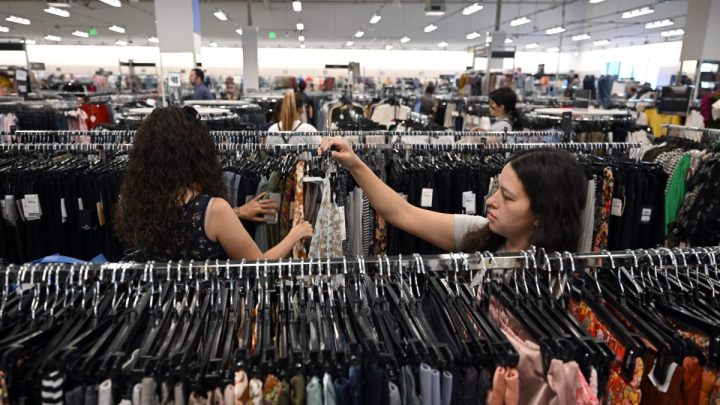
Consumers say they’re doing fine, but the economy as a whole isn’t. Why?
Consumers say they’re doing fine, but the economy as a whole isn’t. Why?

The job market is still booming, and unemployment is down to 3.4%. Incomes have been rising for many of the lowest-wage workers.
And yes, there’s inflation, but it’s looking like that’s starting to come down too. All this sounds pretty good. When people are asked how they feel about their own personal economy, they’re pretty upbeat: According to a survey out this week from the Federal Reserve, almost three-quarters of people feel at least OK about their own personal economies.
But looking at other consumer surveys — like the Conference Board’s Consumer Confidence Index or the University of Michigan’s Consumer Sentiment survey — people seem to think the broader economy’s in the tank.
So, where’s the disconnect?
Well, if people want to point to something in the economy to be concerned about, they’ve got plenty of options.
“Whether that be inflation, recession, higher rates, debt ceiling more recently,” said Shannon Seery, an economist at Wells Fargo. She said people see and experience this stuff every day —including herself.
“I’m in the market for a house, so that’s a tough market currently with higher rates and still-elevated prices,” she said.
And higher prices are pretty triggering.
“We really are very sensitive to price increases,” said Eric Johnson, who studies how consumers think about finance at Columbia Business School. He said there’s a name for what’s going on here: loss aversion. That’s the idea that a loss feels twice as bad as an equivalent gain feels good.
In other words, “if I lose $5, it’s going to disturb me much more than gaining $5 makes me happy,” Johnson explained. And he said the media tends to veer its focus more toward losses.
For instance, the loss of purchasing power.
“Think about a price increase of gas, and how much gnashing of teeth and publicity you hear, and how everyone is very upset,” Johnson said. “Well, gas prices go back down, nobody’s dancing in the streets.”
Politics plays a role in how people view the national economy too. Democrats thought it was worse during the Trump administration, and Republicans think it’s worse now. But Claudia Sahm of Sahm Consulting and a former Federal Reserve economist said that doesn’t really move the poll numbers.
“Because that pattern is so regular, they’re always kinda canceling themselves out,” she said. Instead, Sahm said the disconnect comes down to the questions asked.
If queried about the broader economy, “people are very angry about inflation,” she said. “Makes total sense. But that’s different from asking them, ‘How are you doing?’ Because you may be finding ways to manage it.”
People still have jobs. Many still have savings to spend. So even if people are downbeat about the economy?
“Consumer spending keeps going. If you can keep spending, well then, you’re probably doing OK,” Sahm said. And if that continues, she said the economy will keep chugging along, regardless of how people feel about it.
There’s a lot happening in the world. Through it all, Marketplace is here for you.
You rely on Marketplace to break down the world’s events and tell you how it affects you in a fact-based, approachable way. We rely on your financial support to keep making that possible.
Your donation today powers the independent journalism that you rely on. For just $5/month, you can help sustain Marketplace so we can keep reporting on the things that matter to you.











